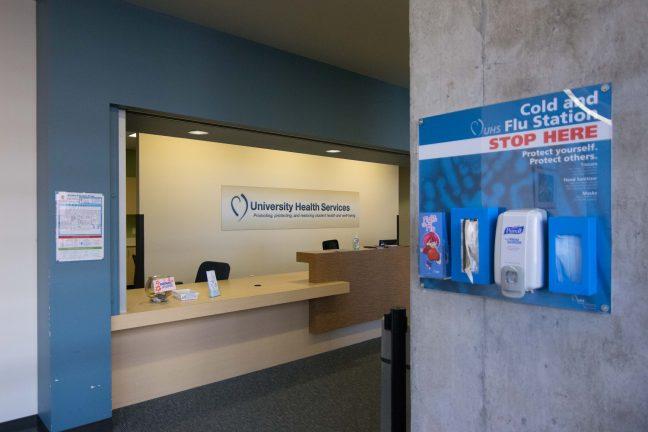University Health Services is working in collaboration with the University of Wisconsin Police Department, University Housing and the Dean of Students Office to re-examine current mental health protocols on campus, according to a UW press release from Jan. 22.
The four campus entities plan to create a comprehensive plan to combine the resources, strategies and strengths of each department, and will continue to share updates to campus policy as it is finalized.
“The primary goal in improved collaboration among these key service providers is to further ensure the well-being and safety of students, de-escalate potentially high-stress situations and promote a shared commitment to diversity, equity and inclusion,” the press release said.
UHS had already begun identifying situations in which the presence of mental health professionals could improve students’ experiences and health when a student shared an emotionally harmful experience of police contact through the campus’s mental health services in late June. In response, UHS started researching alternatives to the current police hospital transportation policy.
This collaboration aims to provide enhanced services to students experiencing mental health crises, especially in situations that were managed independently by UWPD in the past. UHS Mental Health Services is determining various ways to include mental health professionals in crisis situations, both in the initial assessment and in determining an appropriate care plan, in conjunction with UWPD.
“Robust and collaborative mental health services not only improve crisis response, in many cases such partnerships help to prevent crises from occurring,” UWPD Chief Kristen Roman said in the press release. “Model programs recognize the unique role that police and mental health providers play in responding to various levels of crisis and through combining resources they capitalize on the strengths of each to best serve those in need.”
The efforts place a particular emphasis on providing adequate services for students residing in campus housing in response to UWPD data showing that many student mental health-related incidents are reported by house fellows in residence halls.
University Housing’s Director of Marketing and Communications Brendon Dybdahl explained that many students struggle with transitioning to campus and University Housing plays a crucial role in supporting them through that experience. As part of this collaboration, Dybdahl said Housing hopes to provide student residents with more direct access to mental care professionals, especially in times of high stress and need.
“The idea for this program started with student voices. ASM brought this issue to our attention and has been advocating for changes in response to mental health crises,” Dybdahl said. “Many of the program details are still being developed, and Housing will be working with UWPD, UHS and ASM to consult with students and other stakeholders so that it reflects what our residents need.”
ASM Chair and student advocate Matthew Mitnick said he supports this collaborative effort but does not believe the initiative is adequate. Mitnick is apprehensive about the plan, as he believes it lacks specificity and fails to eliminate law enforcement from situations of mental health crisis.
Mitnick and ASM, the official student governance body of UW-Madison, proposed the use of the Crisis Assistance Helping Out on the Streets model on campus, stating this model is an adequate crisis response with limited-to-no law enforcement involved.
According to the clinic which launched this model, the CAHOOTS program uses a two-person team consisting of a medic and a crisis worker, each with training and experience in the mental health field. The crisis response team is not law enforcement and does not carry weapons, and they have the intention of achieving a nonviolent resolution to the crisis situation.
“Statistically, less than 1% of crisis response teams using the CAHOOTS model request police backup. That really indicates there is a real possibility to eliminate law enforcement in these situations,” Mitnick said. “Increased cooperation is definitely a good thing, but the CAHOOTS model is where we need to go. All year long, students have expressed concerns regarding UWPD and their problematic policies.”
Currently, students are able to access a variety of no-cost remote mental health services at UHS, including individual or group therapy, virtual processing spaces, informal counseling drop-ins, workshops and a 24-hour crisis support line.
But, Mitnick said in his view there is a lack of adequate services available to students, with limited availability hindering many students from accessing the care they need.
“It’s pretty apparent that a lot of students do not feel supported and do not feel there are enough options available to them. Students have consistently been asking for expanded hours for UHS counseling and other mental health services,” Mitnick said.
As the collaborative plan is developed throughout this semester, UHS encourages students to provide feedback through their website so they can better address the needs of students.


